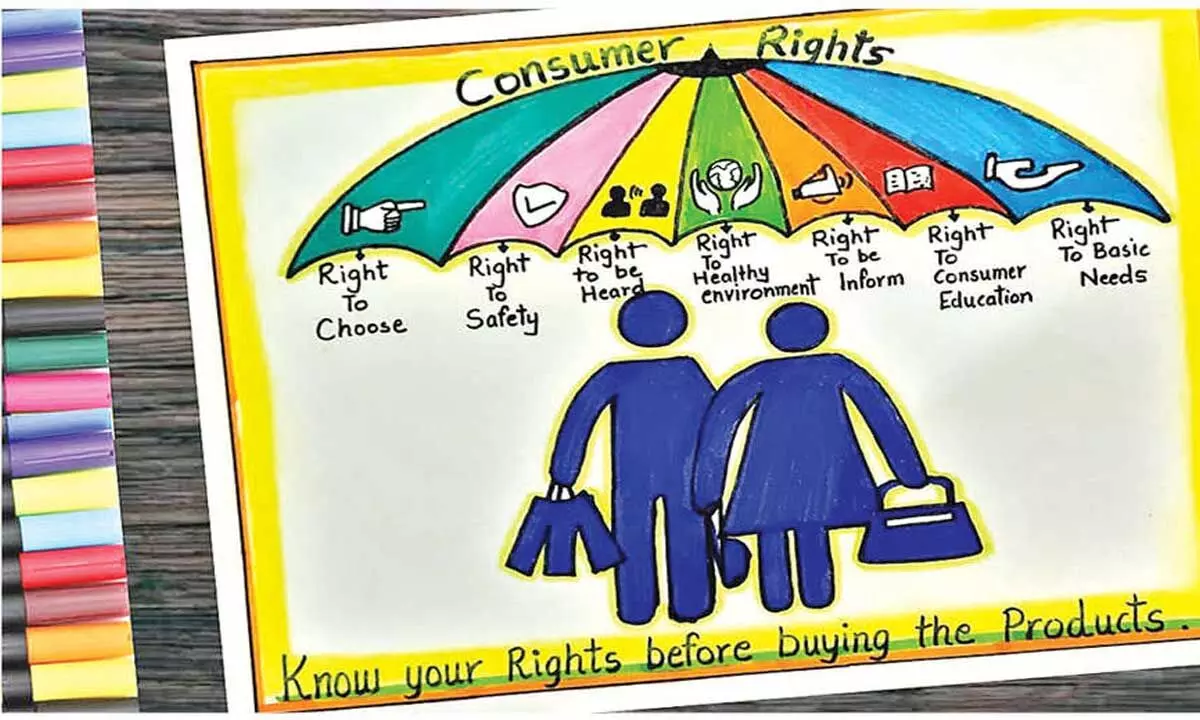Advancing Consumer Rights in India

Imaginea young couple in India, excited to purchase their first home appliance – a washing machine. After much research, they find what seems to be the perfect model at a great price.
Imaginea young couple in India, excited to purchase their first home appliance – a washing machine. After much research, they find what seems to be the perfect model at a great price. However, once they bring it home, the machine fails to work as expected, and the retailer is unresponsive to their concerns.
To address this, the Indian government has implemented various measures to safeguard consumer interests. The Department of Consumer Affairs plays a pivotal role in addressing grievances and offering effective solutions. Additionally, advancements in technology, such as the evolution of the National Consumer Helpline (NCH), have significantly improved the speed and efficiency of consumer support.
Consumer protection
laws & regulations
The Department of Consumer Affairs (DoCA), under the Ministry of Consumer Affairs, Food & Public Distribution, is at the forefront of consumer protection efforts in India. Constituted as a separate department in June 1997, DoCA has been entrusted with the responsibility of implementing various consumer protection laws and regulations, as well as facilitating the overall welfare of consumers.
To strengthen consumer protection in the era of globalization, e-commerce, and online platforms, the Consumer Protection Act, 2019 was enacted to replace the Consumer Protection Act, 1986[2]. The 2019 Act enhances consumer protection, particularly for online transactions. It expands the definition of “consumer” to include individuals engaging in online purchases or services, a provision absent in the 1986 Act. Additionally, the Act defines advertisements to encompass all forms of publicity, including those on electronic media, the internet, and websites. The Act also established the Central Consumer Protection Authority (CCPA), effective from July 24, 2020, to regulate matters like false or misleading advertisements that harm consumers.
BIS Act, 2016
The Bureau of Indian Standards (BIS) Act, 2016, positions BIS as the National Standards Body, allows multiple conformity assessment schemes, and mandates certification for products linked to health, safety, and national security. The Act also introduces consumer protection measures, including product recalls and penalties. Laws form the basis of commercial transaction in any civilized society. To ensure accuracy of measurement in such transaction, the government has enacted legislation namely, the Legal Metrology Act, 2009 (1 to 2010).
Other Steps
Guidelines for Regulation of Dark Patterns (2023): Dark patterns refer to design strategies that manipulate consumers into making decisions that are not in their best interest. The CCPA has taken a strong stance against such practices by issuing guidelines for their regulation, focusing on protecting consumers from deceptive online practices such as drip pricing, disguised advertisements, and false urgency. The Department of Consumer Affairs (DoCA) has been conducting nationwide multimedia awareness campaigns under the title “Jago Grahak Jago” to promote consumer awareness.
National Helpline
The National Consumer Helpline (NCH) has emerged as a central point of access for consumers seeking to address their grievances. NCH has grown nearly tenfold, from 14,795 calls in January 2015 to 1,41,817 calls in January 2024. Available in 17 languages, including Hindi, English, and regional languages, the helpline allows consumers to register complaints via the toll-free number 1915. Complaints can also be filed through the Integrated Grievance Redressal Mechanism (INGRAM) portal, which provides multiple channels such as WhatsApp, SMS, email, the NCH app, web portal, and the Umang app for ease of access.
Additionally, the NCHhas partnered with over 1000 companies under its Convergence Programme in various sectors, including e-commerce, banking, telecommunications, and retail. Complaints related to these companies are directly transferred to them for resolution. The number of convergence partners has steadily increased, from 263 companies in 2017 to 1009 companies in 2024, highlighting the success of this initiative in improving grievance redressal efficiency.
NCH 2.0 Initiative
To further enhance the consumer grievance redressal process, the NCH is rolling out the NCH 2.0 initiative, which incorporates advanced technologies to streamline complaint handling. This includes the introduction of AI-powered Speech Recognition, a Translation System, and a Multilingual Chatbot. The AI-powered Speech Recognition and Translation System enables consumers to file complaints using voice input in their local languages, reducing manual intervention.
National Consumer
Day Celebrations
InIndia, National Consumer Day is celebrated annually on December 24th to commemorate the enactment of the Consumer Protection Act, 1986, (replaced by Consumer Protection Act 2019) which received the assent of the President on this date.
The Consumer Protection Act, 1986 established a three-tier system for resolving consumer disputes, comprising three levels of consumer courts at district, state and national levels. The basic consumer rights that have formed the foundation of modern consumer protection in India are: The Right to Safety; The Right to Be Informed; The Right to Choose; The Right to Be Heard; Right to Seek Redressal; and, Right to Consumer Education.(PIB)















